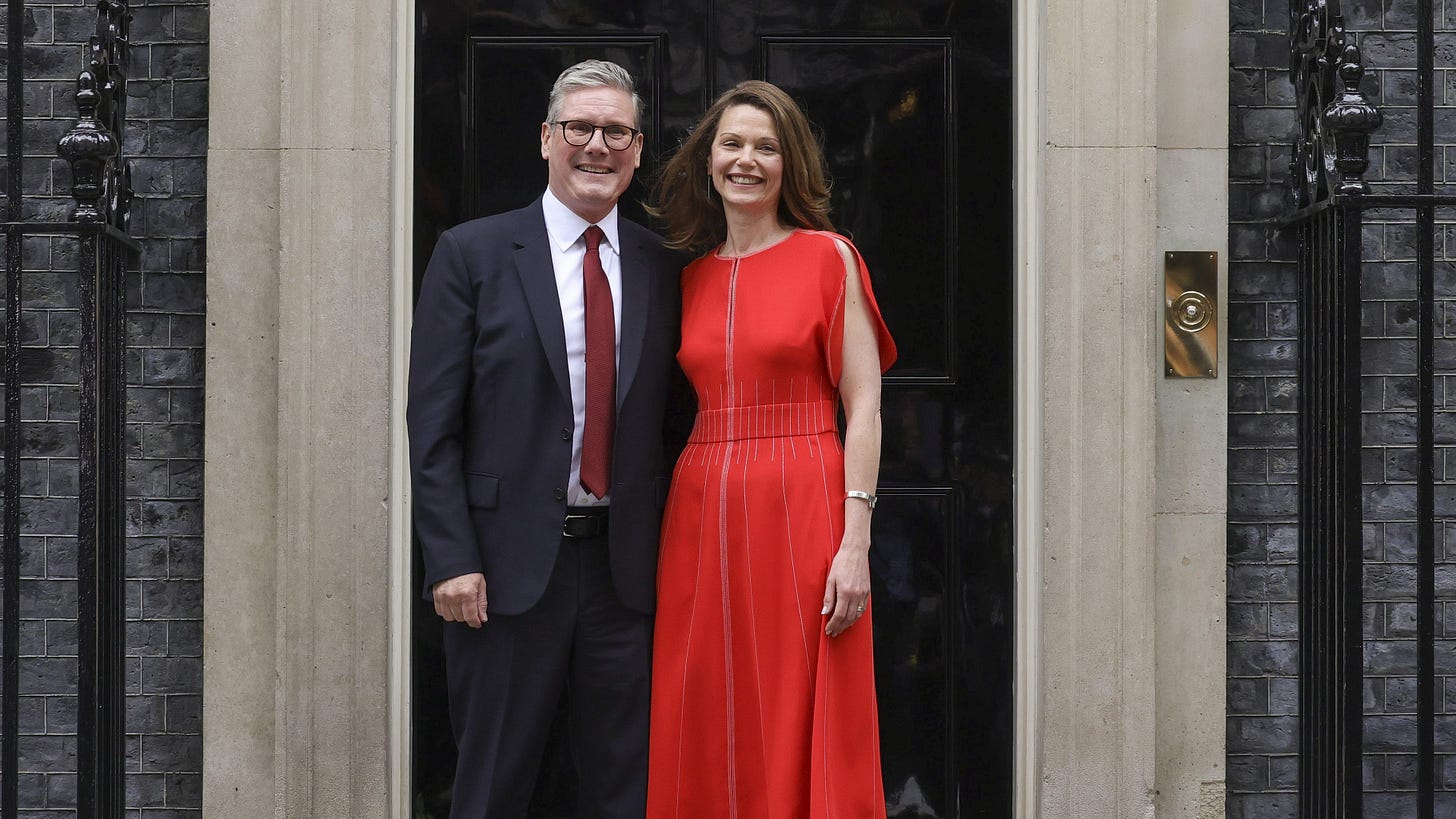UK Politics Weekly - Labour's impending immigration nightmare
Keir Starmer's weakest issue is illegal immigration, and only Reform will provide meaningful opposition
In week 1 of this new Labour government, following the most unconvincing landslide victory in history, its clear that immigration is Keir Starmer’s weakest issue.
I said for months that the Conservatives’ Rwanda migration scheme was destined to fail, and I stand by that, but Starmer’s plan is no better. His first act as Prime Minister was to scrap the scheme, but he had no alternative to replace it with it.
The Tories underwent a prolonged civil war over the issue of immigration, as former MP Miriam Cates admitted today. This division epitomised the divisiveness of the scheme, but by scrapping it and providing no replacement, Starmer has already proven himself incapable of dealing with illegal immigration.
Perhaps we shouldn’t be surprised, as Starmer previously campaigned for the reintroduction of EU freedom of movement, and said that a “racist undercurrent” permeates all immigration law.
His first actions
After scrapping the Rwanda scheme, Starmer’s spokesperson said that Labour would begin processing asylum cases again, granting over 100,000 migrants the opportunity to apply for asylum.
Labour argue that asylum claims need to be processed to prevent migrants from being housed indefinitely in taxpayer funded hotels. But by restarting the processing of claims, they make the UK even more attractive for illegal immigrants, and their exploitation at the hands of people smuggling gangs even more lucrative.
Of the 100,000 waiting for a decision, the Refugee Council predicts that around 70% will likely be granted asylum. If this is true, this will be a further invitation for criminal gangs to send more and more people across the channel. We need a deterrent not further incentives, the Tories gave them enough incentives during their 14 years in office, despite consistently telling us that they would address the issue.
Labour says it will “smash the gangs” and stop the use of tax-payer funded hotels housing migrants, but if even more migrants keep coming, a bigger and bigger backlog of cases will build up. They won’t be able to fix the UK’s broken asylum processing systems quick enough, and instead they need to focus on deterring the boats from coming in the first place.
Even former Prime Minister Tony Blair has called for Labour to be tougher on immigration. He recognised that Reform UK “pillaged the Tory vote” at the election, and argued that the challenge they pose to Labour demands that Starmer finds a “plan to control immigration”
Labour’s opposition
Perhaps the public will give Labour some time to deal with the issue, given the dire circumstances they inherited from the Conservatives. But if progress isn’t made by the end of 2024, opposition will mount, both from the wider public and within parliament.
As the unfairness of illegal immigration, and the unsustainable levels of legal migration, become increasingly apparent, I predict this Labour government quickly becoming unpopular. According to the latest YouGov poll, 66% of Brits feel that immigration has been too high in the last 10 years. Reducing immigration is clearly a majority view, and anything but a significant reduction by Starmer will be seen as failure.
Knowing that Britons want immigration reduced should prompt new Home Secretary Yvette Cooper to suggest the ideal levels of immigration, for both asylum claims and legal claims, and yet we have heard nothing of the sort.
The Tories will try to mount an opposition to Labour’s plans or lack thereof, but they will find this difficult given their own poor record on the issue. The Liberal Democrats are essentially aligned with Labour on immigration, arguing for an end to Rwanda, for faster processing of claims and going after the criminal gangs.
It therefore falls to the 5 Reform UK MPs to provide meaningful opposition to Labour on the issue of illegal immigration. Farage needs to put forward a meaningful and plausible alternative to the Rwanda scheme that acts as a deterrent to small boat crossings.
Farage has been consistently ahead of the curve on this issue, predicting that small boat crossings would become a national issue back in 2020, calling out the French navy for escorting migrants into British waters, and campaigning for withdrawal from the European Court of Human Rights.
With a bridgehead secured in Parliament, Farage will be able to put these arguments, and more, directly to the Labour government. His election success has already had an impact on the Tory party too, with leadership candidates like Badenoch, Braverman and Jenrick preparing campaigns where tackling immigration will feature heavily.
Illegal immigration is clearly Labour’s weakest issue and it seems unlikely that their plans will do anything to address it. Especially given that he won the election with a measly 33.8% of the vote, failure to address this issue will make Starmer very unpopular very quickly. Unless he comes up an alternative to Rwanda, the opposition in Parliament will rip his agenda to shreds.
Thanks for reading. If you enjoyed please consider liking this post, and subscribe to receive my articles directly to your email inbox.
This post will be the first in my weekly column here on Substack, that I will aim to post every Wednesday afternoon.
To see more of my work, click here to follow PoliticsUK on twitter, and here to see our Patreon subscription content.
Follow me on Twitter.
Follow me on Medium.





